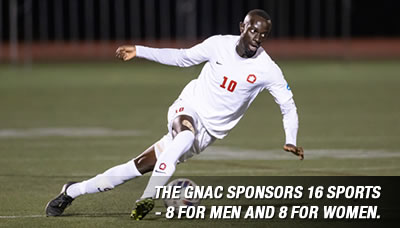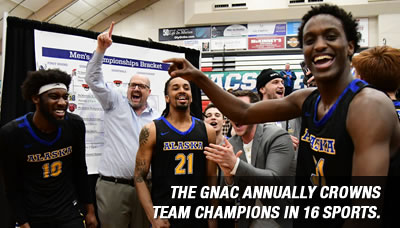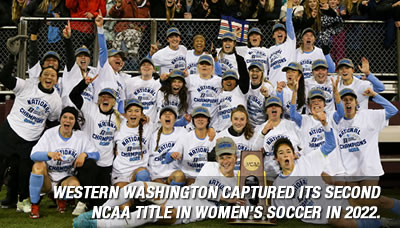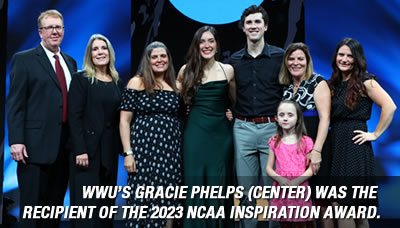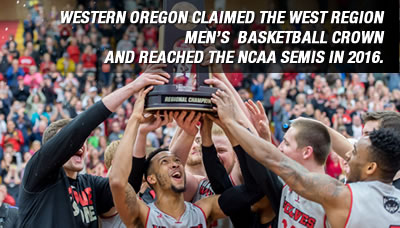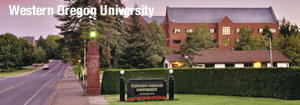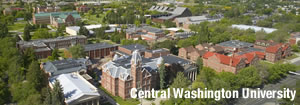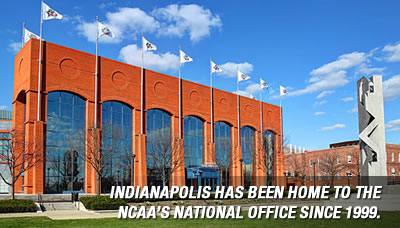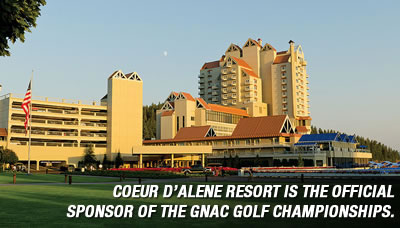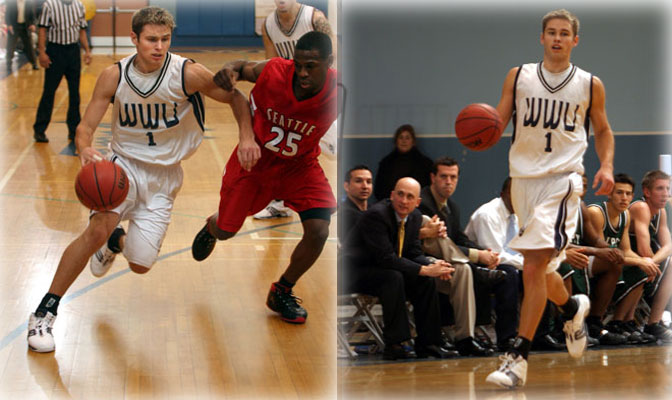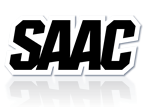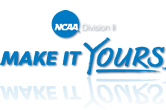Sunday, December 15, 2013
By Brittany Johnson, NCAA.org
BELLINGHAM, Wash. - Former Western Washington University basketball standout Grant Dykstra, a member of the NCAA Division II 40th Anniversary Tribute Team, was used to the word "never." As a three-time team captain and two-time MVP at Lynden Christian High School, he had heard more than his fair share of "can't" as well.
His father and older sister had led LCHS to Washington state basketball championships before him, and his older brother, Greg, did the same with the football team in 1997. Dykstra himself carried on the family tradition nicely, helping his team to a state championship as a sophomore, being named first-team all-state as a senior, and setting new school records for points in a single season and a career (597 and 1,458, respectively).
Most players with his pedigree and lengthy list of accomplishments would have had college recruiters lined up around the block. Yet, despite his overwhelming success as a four-year starter for the Lyncs, Dykstra faced considerable resistance from coaches throughout the recruitment process.
"College coaches would tell me straight to my face that I would never be able to play college basketball," Dykstra said. "They said that I wouldn't be good enough to play on their team or in their conference."
For WWU's career scoring leader, doubt and naysaying were familiar foes, lingering responses from a life-changing accident that occurred when he was only 2 years old.
While playing in a hay mound with his cousins, Dykstra's right arm accidentally got caught in and severely mangled by a grain auger owned by his family. Immediately, his cousin rushed to alert Dykstra's mother, who was milking cows nearby. Instead of running directly to her child, she had the presence of mind to turn off the switch that operated the auger, a decision that ultimately spared Dykstra's life.
"She didn't know what I was stuck in and she didn't even know what that switch was for, but something told her that she needed to turn it off," Dykstra said. "She had never turned it off in her life."
When Dykstra arrived at the hospital, his parents' worst fears were confirmed: The doctors wanted to amputate. However, after weighing the options, they decided to try to save his arm, despite the slim likelihood it would ever be functional again.
Dykstra spent the next two months in the hospital, undergoing and recovering from 12 surgeries. In an effort to keep his right arm steady during the healing process, it was stitched to his stomach, and Dykstra was forced to use only his left hand.
When the time came to find the right college, Dykstra had more than proven himself at the high school level--but many college recruiters weren't eager to offer him an opportunity. Thanks to the recruiting efforts of head coach Brad Jackson, who firmly believed in the high school star's abilities, Dykstra decided to join his brother at Western Washington University in nearby Bellingham.
Although the 6-foot-4 forward knew he had the work ethic to succeed at the collegiate level, it wasn't until Jackson gave him an early opportunity as a starter that he felt fully confident.
"I'm not going to lie - I probably had some of the same doubts that others had," Dykstra admitted. "It was that first year, going against the seniors they had on the team and knowing that I was able to compete against them. From that moment on, it gave me a lot of confidence, and that carried on throughout my career."
That confidence, paired with a lot of hard work, eventually turned Dykstra into the school's career scoring leader (with 1,844 points) and turned several other college coaches' doubts into regrets.
"I got to play those coaches all the time and kick their butt," Dykstra said with a laugh. "That was probably the best satisfaction: getting to beat them... You walk down and do handshakes, and the coach is the last person."
As those opposing coaches shook the hand they had thought would hinder him, Dykstra continued to build an impressive legacy at Western Washington. Upon his graduation in 2006, the Everson native ranked fourth in assists (404), sixth in rebounds (576) and seventh in steals (210).
Dykstra, who started every game of his four-year career without injury, was named a consensus NCAA Division II All-American in 2006. That year, he also received first-team designations from Daktronics and the National Association of Basketball Coaches. During his senior campaign, he averaged 20.6 points and 5.4 rebounds, set the school season record for three-point field goals (101), and helped the Vikings to a 23-7 record and the West Regional final of the NCAA Division II Tournament.
He was also the 2006 recipient of the V Foundation Comeback Award, an honor presented in memory of late basketball coach Jim Valvano. Dykstra, the only non-Division I athlete to ever win the award, says that honor was his proudest accomplishment.
"That just kind of put my whole life story into perspective - everything that I went through," he said. "Not just overcoming that adversity, but also having the success that I had."
These days Dykstra, who received his degree in business administration and finance, works as a commercial loan officer in Bellingham, the same community where he played college basketball. In his free time, the father of four now coaches his children's soccer, flag football and, of course, basketball teams.
Dykstra, who turned down several opportunities to play professionally in Europe after college, can also occasionally be found playing in local recreational leagues. However, the most rewarding way the former All-American spends his time is sharing his faith and speaking to local youth leagues about his inspirational story.
Dykstra, who says he applies the same competitive approach he learned as a student-athlete to his professional life now, is grateful for his time at Western Washington and encourages local high school students to consider Division II as an option.
"If I went to Division I, I may have been the eighth, ninth, tenth man on the bench," he said. "But I knew that I could go to Division II and have the opportunity to have four full years of success and build a legacy within my community."

